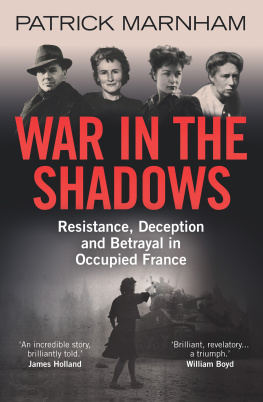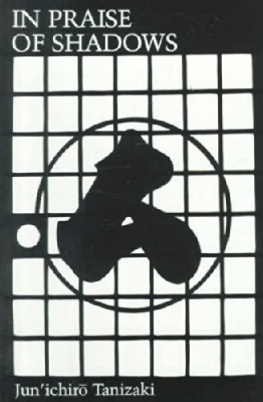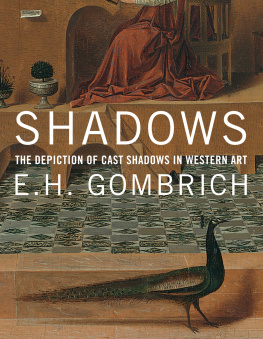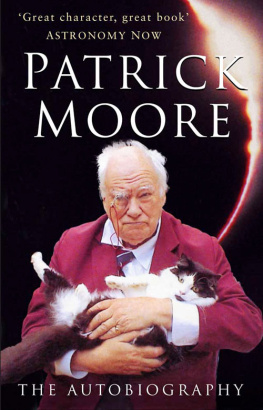Patrick Marnham - War in the Shadows
Here you can read online Patrick Marnham - War in the Shadows full text of the book (entire story) in english for free. Download pdf and epub, get meaning, cover and reviews about this ebook. year: 2020, publisher: Oneworld Publications, genre: Non-fiction. Description of the work, (preface) as well as reviews are available. Best literature library LitArk.com created for fans of good reading and offers a wide selection of genres:
Romance novel
Science fiction
Adventure
Detective
Science
History
Home and family
Prose
Art
Politics
Computer
Non-fiction
Religion
Business
Children
Humor
Choose a favorite category and find really read worthwhile books. Enjoy immersion in the world of imagination, feel the emotions of the characters or learn something new for yourself, make an fascinating discovery.
- Book:War in the Shadows
- Author:
- Publisher:Oneworld Publications
- Genre:
- Year:2020
- Rating:4 / 5
- Favourites:Add to favourites
- Your mark:
- 80
- 1
- 2
- 3
- 4
- 5
War in the Shadows: summary, description and annotation
We offer to read an annotation, description, summary or preface (depends on what the author of the book "War in the Shadows" wrote himself). If you haven't found the necessary information about the book — write in the comments, we will try to find it.
War in the Shadows — read online for free the complete book (whole text) full work
Below is the text of the book, divided by pages. System saving the place of the last page read, allows you to conveniently read the book "War in the Shadows" online for free, without having to search again every time where you left off. Put a bookmark, and you can go to the page where you finished reading at any time.
Font size:
Interval:
Bookmark:
Acknowledgements
My thanks are due to Frdric Thry of Chteau Nanteuil, the grandson of Anne-Marie de Bernard, who made this book possible by allowing me to consult his family papers and the records of his house and offered me so much generous hospitality over the years. I am also grateful for the assistance offered by his brother Christophe and to Vicky Read, a descendant of the Irelands, the family that first introduced Nesta Cox to Nanteuil. The story that I have told is that of the previous generation of Frdrics family, of his mother Batrice, ne Gardnor-Beard, his aunt Muriel, always known as Moune and of his uncles, Pierre Thry and Owen Watson.
In the Sologne, I am particularly grateful to Madame Elizabeth Gicquel of Vineuil, who assembled a long account of the extraordinary life of her friend Nesta Cox, which I have drawn on heavily in chapters 2 and 10. I have also been helped by Madame Jeanne Dambrine, ne de Tristan, of Bracieux, formerly of the Rseau Adolphe , and Madame Franoise Clerget of Nanteuil.
I was able to interview or correspond with two anciens lves of the 1930s, the late Jeremy Hutchinson QC (Lord Hutchinson of Lullington) and the late Valerian Wellesley (8th Duke of Wellington). Among other former students of Nanteuil I would like to remember David Pinckney, Annabel Farrell (1957) and Patrick Brooks, and salute my fellow pupils of the summer of 1962, Neil Pyke, Angela Toller and Elizabeth Shaw, with whom I have long since lost touch. Nor do I forget our neighbour of those days, Chantal de Froberville.
In Paris I was generously entertained by the late Pierre Braillard and assisted by Jean-Pierre Pujes, Jean-Louis Crmieux-Brilhac, Jean-Louis Faure and Gilles Perrault and also by Jean-Pierre Villemer. In Brussels, Manu Riche was a generous host and one of the first to encourage my interest in the story of Nanteuil; he also invested his time and money in a proposal to film it. In addition, I was encouraged by Kathleen de Bethune and advised by Philippe Van Meerbeeck. I would also like to thank Mrs Brenda Hope, niece of the late Corporal Charles Carter for permission to quote from her uncles diary, and Andrew Bradford, the elder son of the late Brigadier B.C. Bradford of the 2nd Battalion, Black Watch.
I have not forgotten the role played many years ago in this project by my sometime publisher Liz Calder, with whom I have had so many years of friendship, and I remain grateful to Nicola Solomon, chief executive of the Society of Authors, for her professional advice which was of invaluable help during a difficult episode.
Steve Hawes was kind enough to read and comment on much of the first draft. William Thry, of Nanteuil, great-grandson of Anne-Marie de Bernard, undertook additional research in the departmental archives. Professor George Huxley decoded part of an anonymous letter. At Corpus Christi College, Cambridge, Dr Anne McLaughlin, Head Librarian, and Dr Lucy Hughes, Archivist, were most generous with their time and Dr James Howard-Johnston granted me regular access to the library of my old college, Corpus Christi College, Oxford.
I would like to thank the staff of the Bodleian Library at Oxford, and the librarians of the London Library in St Jamess Square, as well as the staff of the National Archives at Kew, the Archives nationales at Pierrefitte-sur-Seine, the Service historique de la Dfense at Vincennes, the Archives dpartmentales de Loir-et-Cher at Blois and the Muse de la Rsistance in Blois.
This book is not always uncritical of the official history of secret intelligence. So I should acknowledge the considerable debt I nonetheless owe to a number of distinguished practitioners in this field. They include Christopher Andrew, the late Sir Michael Howard and the late Keith Jeffery. I should also mention David Reynolds, David Stafford, Thaddeus Holt and Edward Harrison. I am greatly indebted to them all and I could not have proceeded with my own research without a close study of their work. I hope I have adequately recorded my debt in this bibliography and in the source notes. I have also been enthused by Julian Jacksons remarkable biography of Charles de Gaulle, and among French authorities I would mention Daniel Cordier MBE, the late Jean-Louis Crmieux-Brilhac, Jean-Pierre Azma and Olivier Wieviorka.
Other authors working in this field whose work I have found particularly helpful include Nigel West, Jimmy Burns, Sarah Helm and Francis J. Suttill. I am also grateful to Tom Bower, biographer of Sir Dick White, who succeeded in extracting the quote that became this books epigraph.
I owe a great deal to my agent Veronique Baxter of David Higham and to my editor at Oneworld, Bill Swainson, for his patient and painstaking criticism, and for shepherding War in the Shadows through the pandemic lock-down crisis of 2020. I of course remain entirely responsible for any errors outstanding.
Finally, this book was written with the assistance of a grant from the Authors Foundation, a fund administered by the Society of Authors. The support of the Foundations trustees in 2012 enabled me to undertake months of additional research in Paris and Blois. My greatest debt, once again, is to my wife, Chantal.
Patrick Marnham, Woodstock, July 2020
Afterword: The Level Sands
Remorse is the knife that probes far deeper than the wound... It is the feelings that are killed... and the effects lie like bleached bones on the level sands...
Wordsworth by Herbert Read
In 1973 I received a letter from Nanny, who had been visiting friends in England over Christmas.
Nanteuil January 5,
My dear Patrick,
I am sorry I missed you when you came to Nanteuil. I would so love to see you again and hope before long you will come back. Thank you so very much for the tea, it saves my life at times and I do need it more often than I should...
I am at Bettys but have lunch with Moune. The big house is too cold for me. I dont know how Moune lives in it. She is still unsettled and still doesnt know when she will be able to move, she will have so much to do when she does, she is taking on a lot. So [are] Serge and Betty taking on Nanteuil, they will need a lot of courage and patience...
Here we have Frdric very ill. I should say he has brain fever. He has been very ill for three weeks, at first he was unable to sleep, he was so worn and delirious at times... He sleeps most of the day now. For three days and nights Serge never left him, he has been wonderful with him... There is some talk of him going to a hospital in Paris. At these times I long for a Doctor that speaks English that I can understand...
I still miss Madame de Bernard and since I lost my friend in England I feel so alone, which is the fault of old age...
All my love to you. Come back to see us soon.
Yours,
Nanny
The last time I saw Souris she was sitting in her sunny alcove overlooking the courtyard, surrounded by the leather-bound works of Victor Hugo, and drinking a cup of Nannys English tea. She had the same slightly hesitant smile that I remembered, and she apologised for being too tired to come downstairs. She died in February 1971. She had been confused for some weeks, thinking she was back in Ravensbrck, with Dorothea Binz, Vera, Carmen, Irma and all those others. There were 546 Aufseherinnen guarding the camp, who competed for the approval of the 1008 male SS. For Souris, time had levelled the sands, and the bones of the shadow land had emerged: the land of unimaginable cruelty where the hospital was run by doctors who carried out surgical experiments without anaesthetic, where nurses beat you with clubs and poisoned their patients, and where new-born babies were drowned in a bucket of water before their mothers eyes a procedure that could take twenty minutes or more. Of the 11,000 French women registered at Ravensbrck, 8,000 never returned, a mortality rate of 72 per cent, comparable to that of the sappers on the D-Day beaches. But the women who died in Ravensbrck did not die quickly, or in the heat of battle, or with the RAMC to back them up and help them through.
Next pageFont size:
Interval:
Bookmark:
Similar books «War in the Shadows»
Look at similar books to War in the Shadows. We have selected literature similar in name and meaning in the hope of providing readers with more options to find new, interesting, not yet read works.
Discussion, reviews of the book War in the Shadows and just readers' own opinions. Leave your comments, write what you think about the work, its meaning or the main characters. Specify what exactly you liked and what you didn't like, and why you think so.







